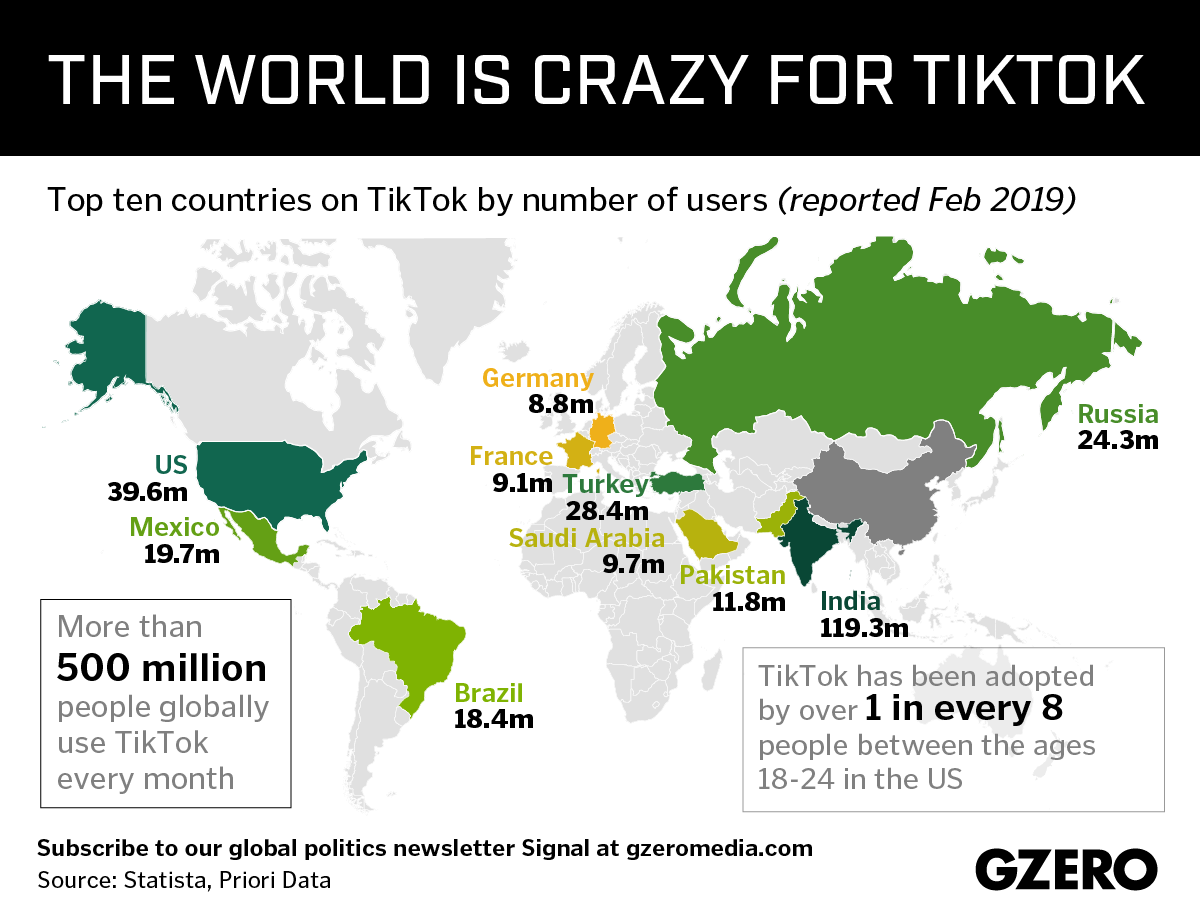November 05, 2019
The US is opening a national security investigation into TikTok, the wildly popular short-form lip-syncing and music video app that already has more than 500 million users. Why? Because TikTok is owned by a Chinese company called ByteDance. Lawmakers are worried about how that company handles the data it gathers on its 26 million US-based users, most of whom are under 25 years old. All those users produce reams of valuable personal data that Bytedance can use to improve its AI algorithms, but the Chinese government's broader AI and data ambitions have also become a national security concern for US spooks. As the alarm bells sound in Washington over yet another Chinese tech company, here's a look at where TikTok is used most, and by whom.
From Your Site Articles
- Meta's moves to malign TikTok reveal common dirty lobbying practices - GZERO Media ›
- Senator Mitt Romney on Tiktok: shut it down - GZERO Media ›
- TikTok is the ultimate propaganda tool, says tech expert Scott Galloway - GZERO Media ›
- The US vs TikTok (and China) - GZERO Media ›
- Canada is "eyes wide open" on China, says defense minister - GZERO Media ›
- China responds to US provocations: US/China relations further strained - GZERO Media ›
More For You
Bad Bunny during the Super Bowl LX halftime show press conference at Moscone Center.
Kirby Lee-Imagn Images
100 million: The number of people expected to watch the Super Bowl halftime performance with Bad Bunny, the Puerto Rican superstar and newly minted Album of the Year winner at the Grammys.
Most Popular
Think you know what's going on around the world? Here's your chance to prove it.
- YouTube
An imminent US airstrike on iran is not only possible, it's probable.
Americans are moving less — and renting more. Cooling migration and rising vacancy rates, especially across the Sunbelt, have flattened rent growth and given renters new leverage. For many lower-income households, that relief is beginning to show up in discretionary spending. Explore what's changing in US housing by subscribing to Bank of America Institute.
© 2025 GZERO Media. All Rights Reserved | A Eurasia Group media company.
